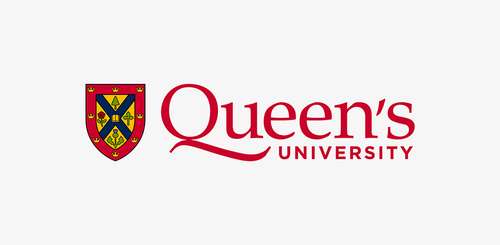Job Board > Research Technician - Queens University
 |
Reporting to the Principal Investigator (PI), the Research Technician will be part of a team in a biomedical research lab focused on Cardiac Immunology. The successful candidate will support on-going research activities within the newly established Dick lab at Queen’s University. The lab studies the maintenance and function of tissue resident myeloid cells within the heart using genetic mouse models and multi-omics techniques.
The primary responsibilities of the Research Technician will be to oversee day-to-day laboratory operations, ensure maintenance of equipment and laboratory space, and dispose of biological/hazardous wastes. They will be required to assist and perform experiments in the lab and record results/data and conduct analysis required by the Principal Investigator. The Research Technician will be working with genetic mouse models and will be required to assist in the management of a mouse colony, perform injections, pre-op and post-op care of the animals, and tissue dissections.
Job Description
KEY RESPONSIBILITIES:
• Responsible for maintenance of laboratory facilities, equipment, day-to-day operations, and safe management of hazardous materials. Liaise with PPS and EH&S when required.
• Perform routine animal care procedures involving mice including handling, husbandry, genotyping, injections (IP, IM, IV), and health checks.
• Coordinate and conduct experiments and procedures according to protocols and scientific methods.
• Analyse experimental data and perform statistical analysis.
• Adhere to Standard Operating Procedures (SOPs) and use precision laboratory equipment and instruments (such as cell culture facilities, biosafety cabinets).
• Ensure compliance with safety and ethical guidelines, and appropriate use of laboratory equipment by junior research staff and students in the lab.
• Perform administrative duties as required including: inventory/ordering supplies, maintenance, bookkeeping, and record keeping. Ensures adherence to the University’s and granting agency’s policies and procedures.
• Participate in meetings with principal investigator and research staff and evaluate/interpret the validity of data as needed.
• The use of some hazardous materials will be required and include but are not restricted to, Diphtheria toxin, tamoxifen, and cardiotoxin.
• Undertake other duties in support of the laboratory.
SPECIAL SKILLS:
• Respects diversity and promotes inclusion in the workplace.
• Ability to adapt quickly to changing circumstances and make accommodations.
• Ability to manage multiple priorities and meet deadlines and to coordinate experimental schedules.
• Self-directed, able to create and implement programs with minimal supervision and guidance.
• Excellent interpersonal and communication skills (verbal and written) and the ability to work collaboratively.
• Ability to perform research-related procedures (e.g., prepare solutions, dissection, specimen preparation)
• Extensive knowledge of Molecular Biology and general laboratory techniques.
• Knowledge of computer programs, programming, and information technology necessary for research, preparation and presentation of data and analysis.
• Ability to handle animals, including sampling, care, and treatment in accordance with ethical guidelines.
• Will require proficiency in a variety of machines and instruments such as light and immunofluorescent microscopes, confocal microscope, flow cytometry, centrifuges, and PCR machine.
• A high degree of accuracy in all work assignments, and record keeping.
DECISION MAKING:
• Under appropriate supervision, the incumbent will decide on optimal protocols and equipment to use in running an experiment and decide on steps to take when assigned a new project.
• Determine how to deal with unexpected experimental results and errors. Decide if a problem can be resolved personally or if consultation with the supervisor is necessary.
• Determine best way to correct minor methodological deviations.
• Determine experimental approaches and techniques. Decide how to optimize protocols to get most accurate results. Adapt procedures to solve research problems or to gain new perspective.
• Respond to inquiries from the public and other researchers and determine where to redirect inquiries, if required.
• Determine which equipment needs to be repaired, replaced, or acquired, as necessary.
• Determine whether a particular procedure falls within ethical guidelines and make
concessions and adjustments as necessary and possible.
• Determine appropriate way to dispose of hazardous wastes within safety guidelines and react
in an emergency situation to minimize damage and avoid risk.
REQUIRED QUALIFICATIONS:
• Completion of a two- or three-year post-secondary program in a related field (Biochemistry, Cell Biology, Immunology, Veterinary Technician, Laboratory Technician, or other related fields).
• Completion of a University degree in a relevant field considered an asset.
• Minimum of three years of related experience in a molecular biology laboratory setting or an equivalent combination of education and experience.
• Previous experience as a Research Technician would be an asset.
Applicants Please Follow The Link Below:
https://clients.njoyn.com/CL4/xweb/xweb.asp?clid=74827&page=jobdetails&jobid=J0223-1454&BRID=EX318823&SBDID=1&LANG=1
Queen’s University is the Canadian research intensive university with a transformative student learning experience. Here the employment experience is as diverse as it is interesting. We have opportunities in multiple areas of globally recognized research, faculty administration, engineering & construction, athletics & recreation, power generation, corporate shared services, and many more.
We are committed to employment equity and diversity in the workplace and welcome applications from individuals from equity seeking groups such as women, racialized/visible minorities, Indigenous/Aboriginal peoples, persons with a disability, persons who identify in the LGBTQ+ community and others who reflect the diversity of Canadian society.